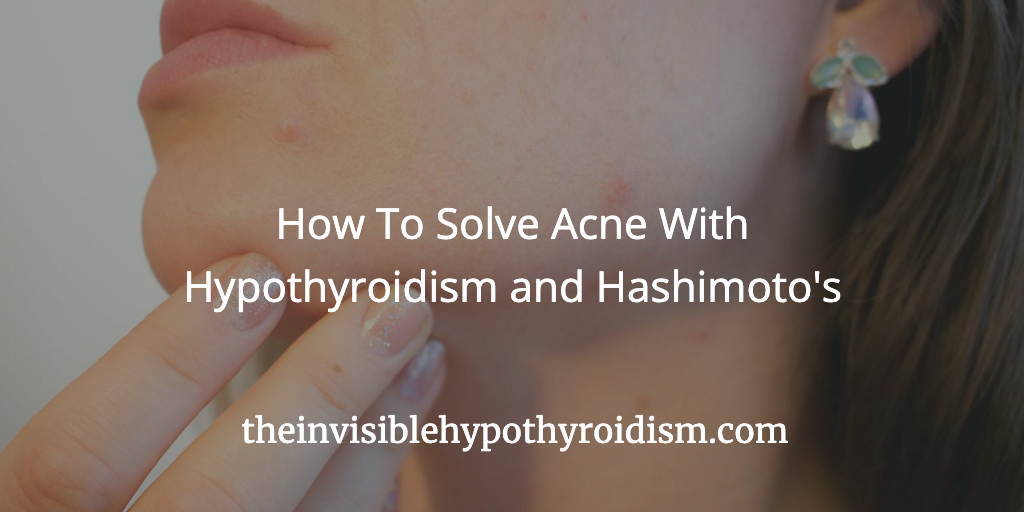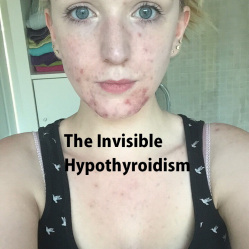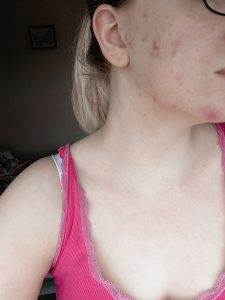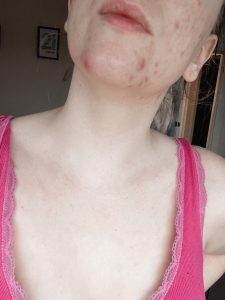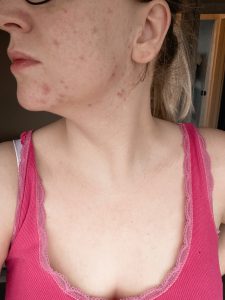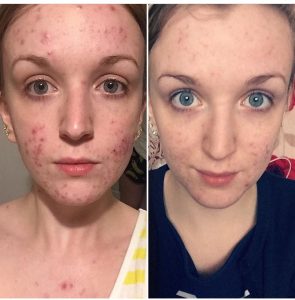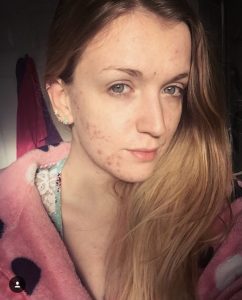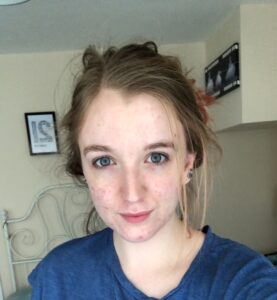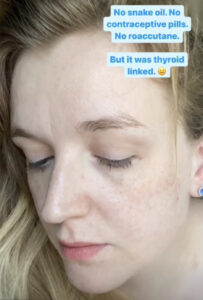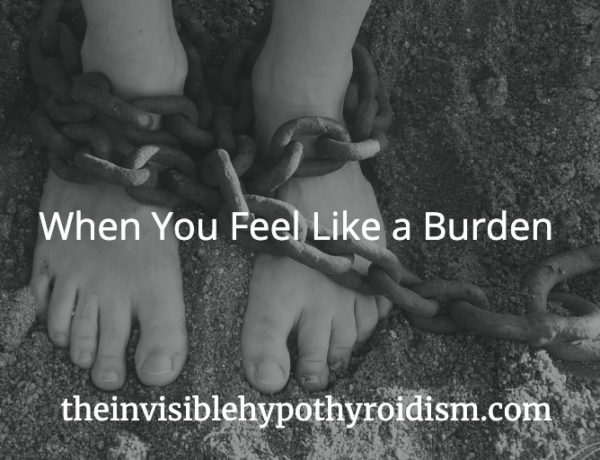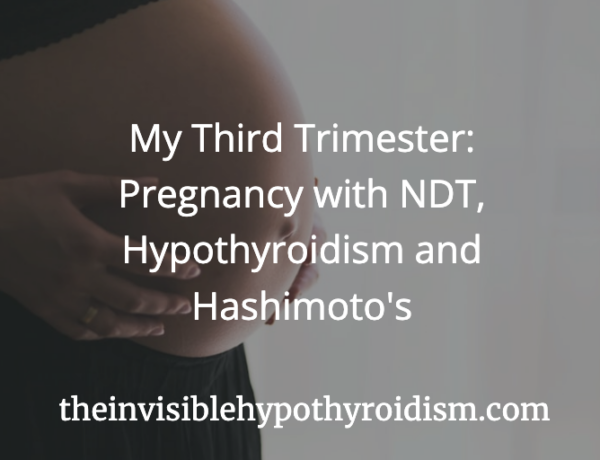Originally published on 24th April 2018 Last updated on 26th October 2023
I’ve been very open about my experiences with acne, over the years. As a teenager, acne began but it wasn’t an alarming amount.
It wasn’t until I decided to come off the combined contraceptive pill in December 2015, aged 22, after being diagnosed with hypothyroidism and Hashimoto’s and starting NDT thyroid medication, that my skin started to go crazy with severe cystic acne.
By unearthing a possible sex hormone imbalance (oestrogen dominance), poor gut health, lack of proper skincare routine and gluten sensitivity, I was able to slowly piece together the puzzle as to why my skin had broken out so badly.
I was originally somewhat nervous showing the following photos of my acne, but I remain loyal to my oath to always be honest, open and realistic about my experience of living with Hypothyroidism and Hashimoto’s. And the acne is a part of that.
The following are the most common causes for acne in thyroid patients.
1. A Sex Hormone Imbalance or Adrenal Issues
Driving my hormonal imbalance was high cortisol. Many of us with hypothyroidism also seem to have adrenal dysfunction. A functional medicine practitioner told me that when high cortisol remains high for a long time, the body can start converting progesterone in to more cortisol to try and sustain this stress response, creating a sex hormone imbalance of too much oestrogen.
High cortisol levels are also associated with feeling stressed and burnt out, and our skin often shows that on the outside, too.
My FMP told me that the high oestrogen levels I had gave me irregular periods and mood swings, as well as the very painful cystic acne on my cheeks, jaw, neck, chin, chest, shoulders and back.
High androgen levels (testosterone) can also be the cause of acne in many with hormonal imbalances. See info about PCOS below.
See more information on “oestrogen dominance” here and “adrenal dysfunction” here.
2. A Gluten Sensitivity (or other diet issue)
Having Hashimoto’s, as 90% of us with hypothyroidism do [1], I decided to give a gluten-free diet a go and, within just a few weeks, I noticed great changes in my skin.
As well as a huge improvement in my acne, brain fog and heart palpitations, I felt healthier overall. I’ve inserted before and after photos of being gluten-free for three weeks below. My periods also became regular once again.
Related Article: 9 Thyroid Symptoms That Improved by Going Gluten-Free
For other people, food sensitivities causing them skin complaints can include dairy, soy, sugar and more. Removing something from your diet for some time to see if it makes any difference can be well worth it. More information about the elimination diet can be found in this book.
I was astounded at the change in my skin from removing gluten. It made a big step forwards, however, I still had a fair bit of ongoing acne.
3. Poor Gut Health
The functional medicine practitioner told me that I had poor gut health with a yeast overgrowth (candida) driving the high cortisol, which in turn was apparently driving the sex hormone imbalance (oestrogen dominance). Going gluten-free was a great first step for my gut health but it was never going to fix everything. This is why I saw such an improvement but not complete riddance of the acne.
(a UK test for Candida can be found here and a US test here)
She told me that through having Hashimoto’s and hypothyroidism, this led to adrenal dysfunction, due to a “leaky gut” and inflammation in the body, which then led to the sex hormone imbalance (oestrogen dominance). And the oestrogen dominance was worsening the adrenal fatigue.
Read about the controversy of whether oestrogen dominance is ‘real’, here.
So, What Did We Do?
I needed a targeted approach to the yeast overgrowth, working on killing this off and eliminating it from the body and then also improving my gut and digestive function at the same time. Grapefruit Seed Extract was recommended by my functional medicine practitioner for the yeast.
Taking digestive enzymes, drinking bone broth and kefir were recommended so I implemented everything the functional medicine practitioner suggested.
The photos below show before and after three months on kefir, using Grapefruit Seed Extract to target the candida and digestive enzymes. In the before photos (left), I have a lot of red, sore spots. The after photos (right) show mostly scarring a few months after starting gut health targeted treatment.
My skin wasn’t completely clear and I was still having regular breakouts, but it was improved.
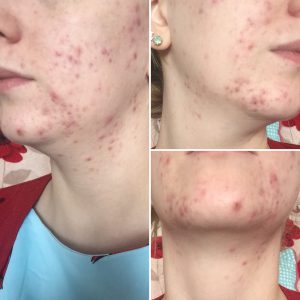
4. The Wrong Skincare Products / Regimen
Different lifestyles and types of skin require different ingredients in skincare products and different skincare regimens.
After reading the following books, I was armed with great knowledge regarding which ingredients to avoid and look for in my skincare items, and how to build a skincare regimen that helped me to reduce the acne and scarring associated with it.
Skincare: The ultimate no-nonsense guide and Sunday Times No. 1 best-seller
The Skincare Bible: Your No-Nonsense Guide to Great Skin
Love Your Skin: The Ultimate Guide to a Glowing Complexion
This step – choosing and using the correct skincare – took me the final steps to clear skin. I no longer struggle with acne (apart from the normal amount that every person gets, such the odd spot from time to time). Photos of my skin as of October 2023 are below, taken from my social media.
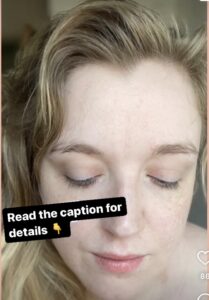
I now understand that my skin definitely needed an approach that looked at what was impacting my skin health on the inside, as well as how to care for it correctly on the outside. I cannot thank the authors of the books mentioned above enough, for educating me on finding the right skincare items for my skin so that I could reach this point.
5. PCOS
Around 1 in 10 females of childbearing age have the condition known as PCOS (Polycystic Ovary Syndrome).
On average, women with PCOS tend to have higher TSH levels and be subclinically (borderline) hypothyroid when compared to controls of the same age without PCOS. [2]
Hypothyroidism, and in particular, Hashimoto’s thyroiditis, is more common in women with PCOS than in the general population. High levels of thyroid antibodies (Hashimoto’s) are found in one in three PCOS patients [2].
If a person has either Hashimoto’s or PCOS, the chance of being diagnosed with the other increases up to ten fold! [3], [4]
Therefore, if you experience acne and have Hashimoto’s or hypothyroidism, it is not unreasonable to request to be checked for PCOS too.
More information on this here.
For a PCOS Blood Test, click here.
6. Low Vitamin / Mineral Levels
It’s worth being checked for low vitamin and mineral levels and considering supplementation if you have skin complaints also.
Ones to look include include:
Vitamin E
Iodine
Vitamin D (UK test option here. UK and US test option here.)
B12 (UK and US test option here.)
Folate/Folic acid (UK and US test option here.)
Ferritin (UK and US test option here.)
Iron, T.I.B.C., Transferrin Saturation (UK and US test option here.)
Magnesium (UK test here, US option here.)
RBC Potassium (US test here.)
More information on vitamins and minerals here.
7. Poor Thyroid levels
Low thyroid hormones Free T4 and Free T3, and high thyroid antibody levels can also contribute to skin complaints, including acne, eczema and itchy skin.
If your doctor will not check all of these then it is worth knowing that you can order thyroid tests yourself from online laboratories. (You can see a UK lab here and a US lab here.)
Once you have your results, checking to ensure they are optimal and not just ‘in range’ in crucial.
Conclusion
In my case, and I believe in many thyroid patients cases, a mixture of contributing factors are behind acne. I knew that mine was linked to my hormones, as it got worse when on my period, as well as during both my pregnancies. But I also struggled with very oily skin which needed the correct products and treatment on the outside too.
The delicate balance of hormones in the endocrine system, such as thyroid hormones, adrenal, sex hormones and more, can all impact each other and when one goes out of balance, so can others. By addressing the system as a whole, calming the adrenal fatigue, fixing gut health, using the correct ingredients topically and so on, improvements in the skin and overall health can be seen.
I hope the seven key areas mentioned above give you some starting points to explore the cause/s behind your own acne. Just know that you’re not alone.
Have you had experience with acne? Feel free to share in the comments below.
You can click on the hyperlinks in the above post to learn more and see references to information given.
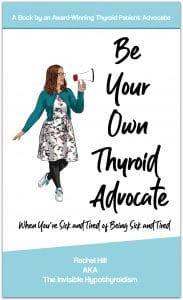
The book Be Your Own Thyroid Advocate: When You’re Sick and Tired of Being Sick and Tired, which builds on this article in detail. Reclaim your thyroid healthy life and banish your symptoms.
References:
[1] https://www.ncbi.nlm.nih.gov/pubmed/3066320
[2] https://www.ncbi.nlm.nih.gov/pubmed/15012623
[3] https://www.ncbi.nlm.nih.gov/pubmed/22115162
[4] https://www.ncbi.nlm.nih.gov/pubmed/20332127

